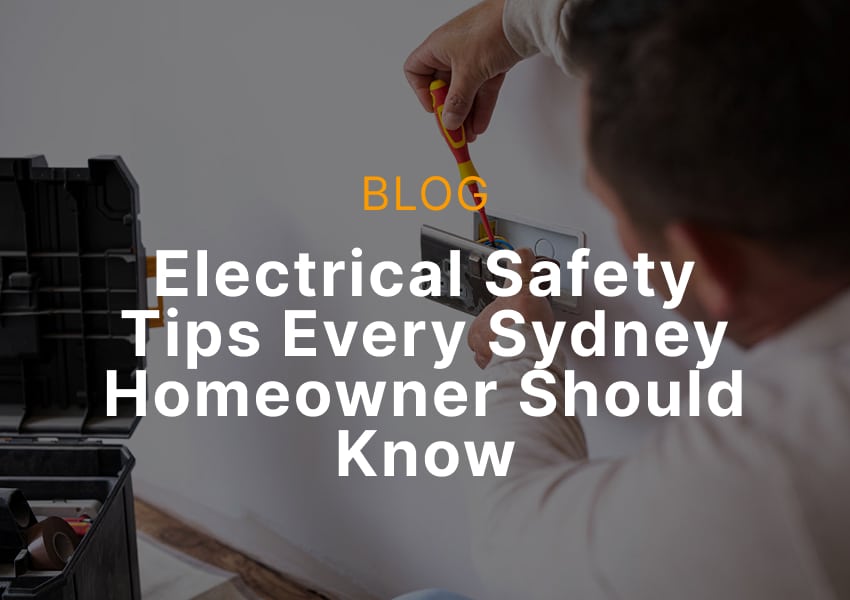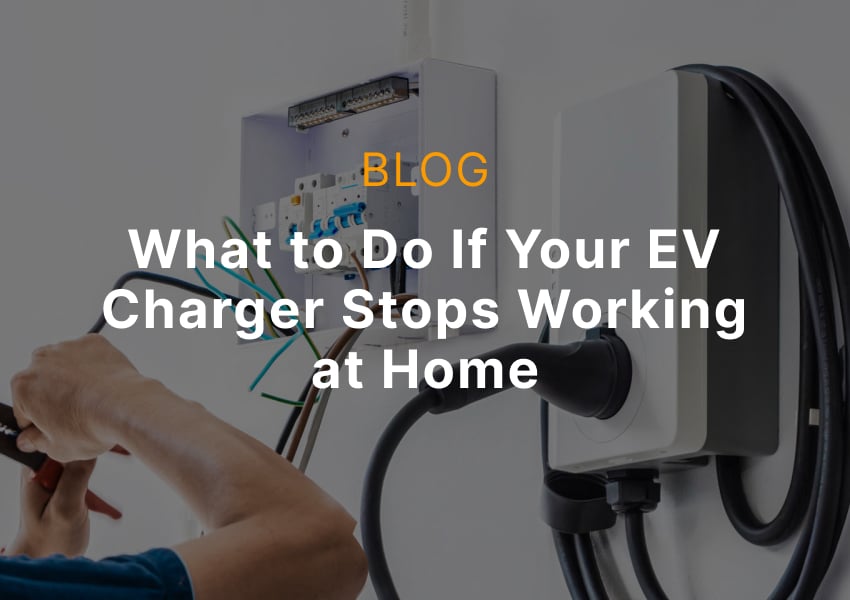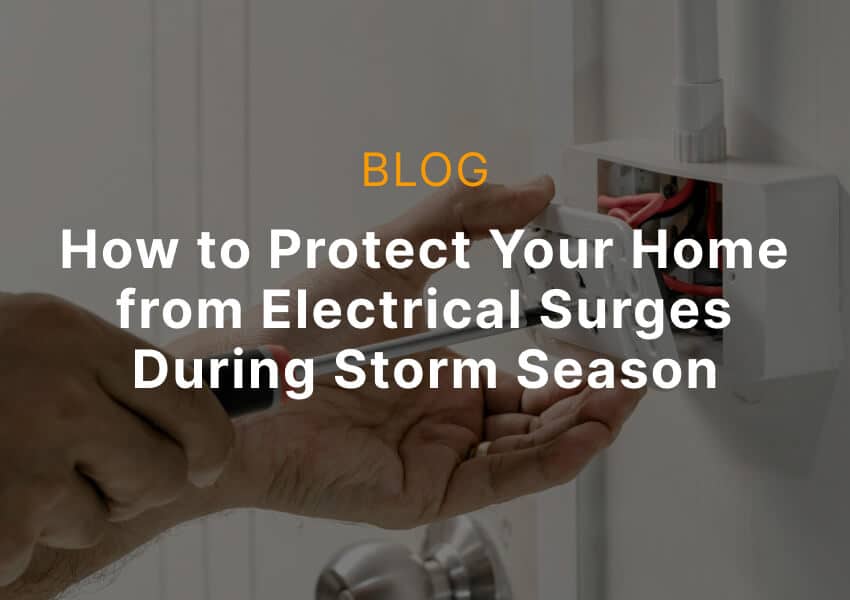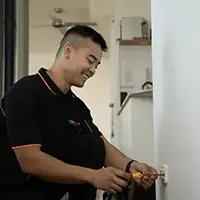Do you know the hidden electrical dangers in your home that could spark a fire? From old wiring to overloaded outlets, many Sydney homes are at risk of serious electrical faults without the owners even realising it. Whether you live in a Federation-era house or a modern apartment, understanding electrical safety tips in Sydney is essential to protecting your family and property. In this guide, we’ll walk you through practical home electrical safety practices, what hazards to watch for, and when it’s time to call in the pros.
Why Electrical Safety Matters in Sydney Homes
Sydney homes face a unique mix of electrical risks that make safety a top priority for every homeowner. These include ageing infrastructure, high demand from modern appliances, and weather-related risks. Here’s why you need to stay alert:
- Older Sydney Homes Still Have Ageing Wiring – Many suburbs like Newtown, Glebe, and Ashfield are full of charming homes built decades ago, but that also means potentially unsafe wiring. Frayed or outdated electrical systems increase the risk of short circuits, shocks, or house fires.
- High Appliance Usage in Modern Living – With the popularity of air conditioners, space heaters, dishwashers, and electric vehicles, our homes are drawing more power than ever. Without proper circuit management, this can overwhelm your switchboard.
- Storms and Power Surges – Sydney’s seasonal storms can bring lightning strikes and sudden power surges. These spikes damage appliances and wiring, increasing the risk of electrical fires if surge protection isn’t in place.
- Fire Risks from Faulty Outlets – Burnt, loose, or cracked outlets aren’t just an eyesore, they’re a fire waiting to happen. Faulty outlets often overheat or arc, which can ignite flammable materials around them.
- Legal and Insurance Requirements – Many insurance policies require your home to meet Australian electrical safety standards. Regular inspections ensure you’re compliant, and covered if anything goes wrong.
Home electrical safety isn’t optional, it’s a must if you want to prevent electrical hazards at home and keep your family safe.
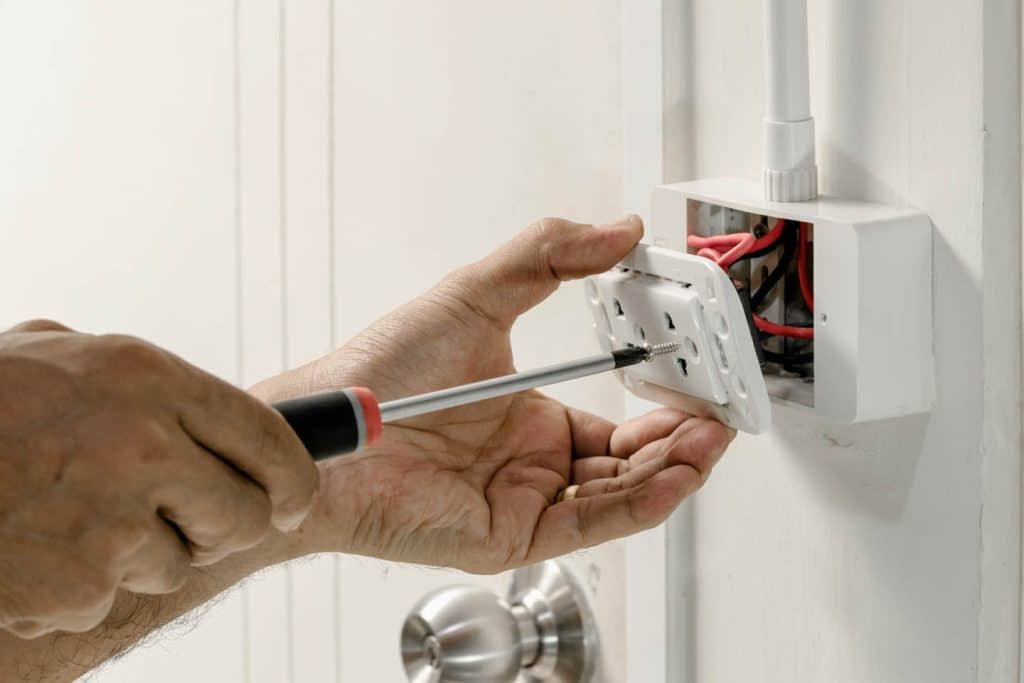
Essential Electrical Safety Tips for Every Homeowner
Let’s break down the most important actions you can take to maintain a safe and hazard-free home.
Avoid Overloading Power Points and Power Boards
It’s tempting to plug in “just one more” device, but overloaded outlets are one of the top causes of residential electrical fires. Spread out your appliances across different circuits and use power boards with overload protection. Be especially cautious during holidays or winter months when energy use spikes. These simple electrical safety tips in Sydney can protect your home.
Test and Replace Smoke Alarms Regularly
Your smoke alarms are your first line of defence in case something goes wrong. Smoke alarm testing in Sydney should happen every six months, press the test button and listen for a beep. Replace the battery annually and the entire unit every 10 years. They’re critical for electrical fire prevention, especially near kitchens, heaters, and fuse boxes.
Inspect and Replace Old or Damaged Wiring
Cracked, exposed, or discoloured wiring is a clear sign of danger. If your lights flicker, switches feel warm, or breakers trip often, it’s time to investigate. Old wiring replacement in Sydney is essential in homes more than 30 years old. Don’t wait for a fault to occur, get a qualified electrician to assess your wiring.
Schedule Regular Switchboard Inspections
Your switchboard is the heart of your home’s electrical system. If it’s outdated or missing safety switches, it’s a major hazard. Arrange a switchboard safety inspection every few years, especially before buying or renovating. A licensed electrician in Sydney will ensure it’s compliant with modern safety standards and ready to handle today’s power loads.
Use Licensed Electricians for All Repairs
DIY might save a few bucks, but it’s illegal, and dangerous, to perform unlicensed electrical work. Only use a licensed electrician in Sydney, like the team at Powerhub Electrical Sydney, to handle installations, rewiring, or fault repairs. It’s the safest way to protect your home, family, and legal standing.
DIY Electrical Safety Checks You Can Do
While you should never attempt electrical repairs, there are safe checks every homeowner can do to spot potential risks early.
Check for Burn Marks on Outlets
Dark marks, melted plastic, or discolouration on your outlets mean something’s overheating. Add this to your electrical safety checklist and unplug anything from affected outlets immediately. If you see burn marks, it’s time to call a professional to prevent electrical hazards at home.
Listen for Buzzing or Crackling Switches
That soft buzz or faint crackle from a switch or fitting isn’t harmless background noise, it could be arcing, where electricity jumps between faulty connections. This is a major cause of house fires. These sounds are your early warning signs. Don’t ignore them if you care about home electrical safety.
Unplug Appliances When Not in Use
Appliances left plugged in can still draw power, overheat, or be damaged during a surge. Unplugging saves electricity and reduces fire risk, especially with toasters, kettles, and portable heaters. It’s one of the simplest electrical safety tips Sydney homeowners can follow to protect your Sydney home from electrical hazards.
Keep Cords and Leads in Good Condition
Frayed cords, exposed wires, and bent plugs are dangerous and non-compliant. Replace damaged leads immediately and avoid running cords under carpets or rugs, where they can overheat. This should be part of every electrical safety checklist if you want reliable electrical safety solutions.
Test Your Safety Switches Every Three Months
Press the “test” button on your safety switches, if they don’t trip, they’re not working. These devices are life-saving during faults. Regular testing helps ensure they’ll respond instantly if a surge or short circuit occurs. If they fail the test, call a licensed electrician in Sydney without delay.

When to Call a Licensed Sydney Electrician
There are times when DIY checks aren’t enough, and your home’s safety depends on expert intervention. Here’s when to pick up the phone:
- Repeated Tripping Safety Switches or Breakers – If your switch keeps flipping off, it’s likely due to overloaded circuits or deeper wiring faults. This isn’t something to ignore or reset indefinitely.
- Burning Smells or Scorch Marks – Any sign of heat or fire risk, especially around outlets, cords, or fittings, means you need urgent help. Fire can break out before you even notice smoke.
- Frequent Power Surges or Outages – If your lights flicker or electronics get damaged often, your switchboard may not be regulating voltage correctly. Get it checked by a licensed electrician in Sydney.
- Home Renovations or EV Charger Installations – Any major addition to your electrical load requires a system check and potential upgrades. Don’t assume your old board can handle modern tech.
- Peace of Mind With Professional Inspections – Scheduling professional safety inspections ensures everything meets code, your insurance stays valid, and your family stays safe.
Keep Your Sydney Home Safe With Electrical Safety Checks
Every Sydney homeowner should take electrical safety seriously. From avoiding overloaded power point risks to testing your safety switches, small steps make a big difference. But when you spot troubling signs, like scorch marks, buzzing switches, or frequent surges, don’t leave it to chance.
Electrical safety tips in Sydney aren’t just about convenience, they’re about protecting your family, property, and peace of mind. And prevention? It’s always cheaper than emergency repairs.
Call Powerhub Electrical Sydney today on 0400 332 331 for expert electrical safety inspections, repairs, and switchboard upgrades. Protect your home and family with trusted local electricians.

